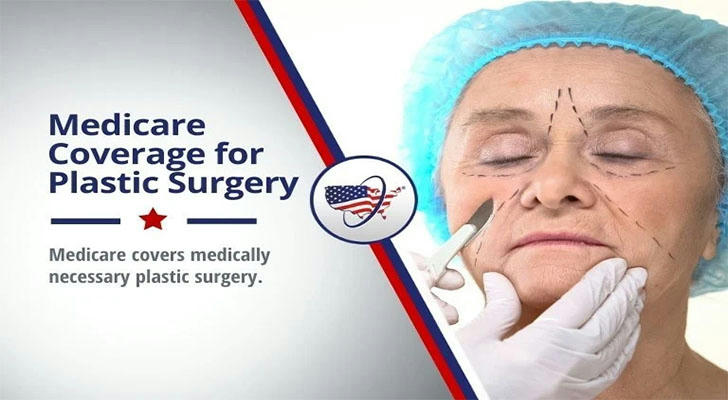How Much Does Cosmetic Surgery Cost? A Simple Guide to Budgeting and Insurance

Cosmetic surgery is becoming more popular as people seek to enhance their appearance and boost their confidence. However, many people’s first question when considering surgery is: “How much does cosmetic surgery actually cost? How can I budget for it, and can insurance help cover some of the costs?”
If you’re thinking about getting cosmetic surgery, this article will explain the costs involved in the simplest way possible and give you practical tips on how to plan your budget and choose the right insurance to avoid financial stress.
1. What’s Included in the Cost of Cosmetic Surgery?
Cosmetic surgery isn’t just about the surgery itself—there are other costs to consider. Here’s what typically makes up the total cost:
• Surgical Fees: This is the main cost of the procedure. Prices can vary significantly depending on the type of surgery, such as breast augmentation, liposuction, or eyelid surgery.
• Anesthesia Fees: Most surgeries require anesthesia, and the cost will depend on whether it's local or general anesthesia. General anesthesia usually costs more.
• Hospital or Clinic Fees: The cost of using a particular hospital or clinic can vary. Private, high-end clinics or well-known hospitals tend to charge more.
• Post-Surgery Care and Follow-Up Visits: After surgery, you may need follow-up visits, medications, or special care, all of which contribute to the overall cost.
2. What Affects the Cost of Cosmetic Surgery?
Several factors will influence the final cost of your surgery:
• Complexity of the Procedure: Simple, minimally invasive procedures are typically cheaper than more complex surgeries like full face-lifts or body contouring.
• Doctor's Experience and Reputation: Surgeons with more experience or a strong reputation often charge higher fees, but their skill and reputation usually ensure better results and safety.
• Location: Surgery costs tend to be higher in large cities or well-known medical centers. Smaller cities or clinics may offer lower prices.
• Materials and Techniques Used: The quality of the materials (like implants) and the technology used can also affect the price. For example, high-end implants or advanced techniques will increase the overall cost.
3. How to Plan Your Cosmetic Surgery Budget

When planning your cosmetic surgery, it’s important to manage your budget carefully. Here’s how you can get started:
• Set a Budget Range: The first step is to determine how much you’re willing to spend. Be realistic about your financial situation and set a range that you’re comfortable with.
• List All Possible Expenses: Beyond the surgery itself, remember to include costs for anesthesia, post-op care, medications, and follow-up visits. These extra costs can add up, so be sure to factor them into your budget.
• Leave Room for Unexpected Costs: Sometimes things don’t go as planned. You may need extra treatment or care, so it’s a good idea to set aside some extra money for unexpected expenses.
4. Can Insurance Help with Cosmetic Surgery Costs?

Cosmetic surgery is expensive, and many people wonder if insurance can help cover some of the costs. While most purely cosmetic surgeries aren’t covered, there are certain situations where insurance might help:
• Medical Insurance: If the surgery is medically necessary (for example, to repair damage from an injury or correct a congenital defect), some insurance plans may cover part of the cost. However, purely cosmetic procedures are usually not covered.
• Post-Surgery Complications Insurance: Some insurance policies offer coverage for complications that arise after surgery, such as infections or the need for revision surgery. This can help reduce financial risks if things don’t go as planned.
5. How to Choose the Right Cosmetic Surgery Insurance
When selecting insurance for your surgery, consider the following:
• Understand the Terms: Different insurance plans have different coverage levels. Be sure to check whether your specific surgery will be covered under the plan.
• Consult a Professional: Talk to an insurance agent or your surgeon to understand which insurance policies are best for your needs. They can help guide you in the right direction.
• Compare Plans: Not all insurance plans are created equal. Compare different plans to find the one that offers the best coverage for the lowest price.
6. Beware of the “Low-Cost Trap”
While everyone likes to save money, it’s important to remember that the cheapest option isn’t always the best choice. Sometimes, low-cost surgery options can lead to poor results or complications. Here’s how to avoid the “low-cost trap”:
• Don’t Go for the Cheapest Option: Some clinics may offer incredibly low prices, but that doesn’t mean the surgery is safe or effective. Always prioritize quality and safety over price.
• Check for Hidden Fees: Some clinics may advertise low prices but add hidden fees later on. Make sure the quoted price includes everything you’ll need for the surgery and recovery process.
7. Conclusion
While cosmetic surgery can be costly, with proper planning and the right insurance, you can manage the financial aspects without overwhelming yourself. Understand the costs involved, set a realistic budget, and choose the right insurance plan to help cover potential complications.
By taking the time to plan ahead, you can ensure that your cosmetic surgery experience is both successful and financially manageable, leaving you with the results you want and minimizing any unexpected financial strain.
